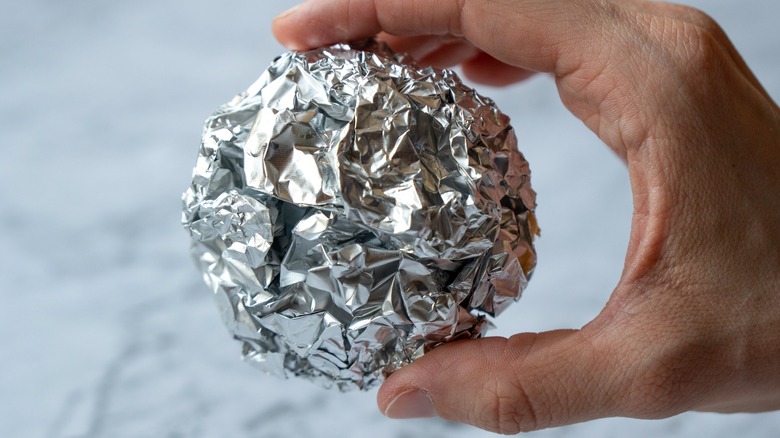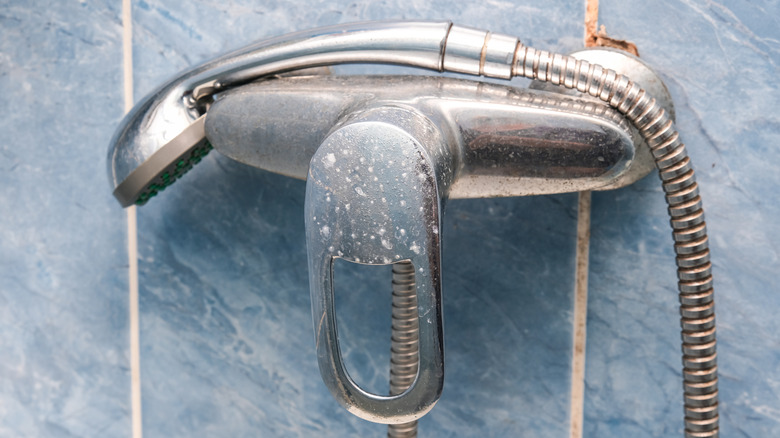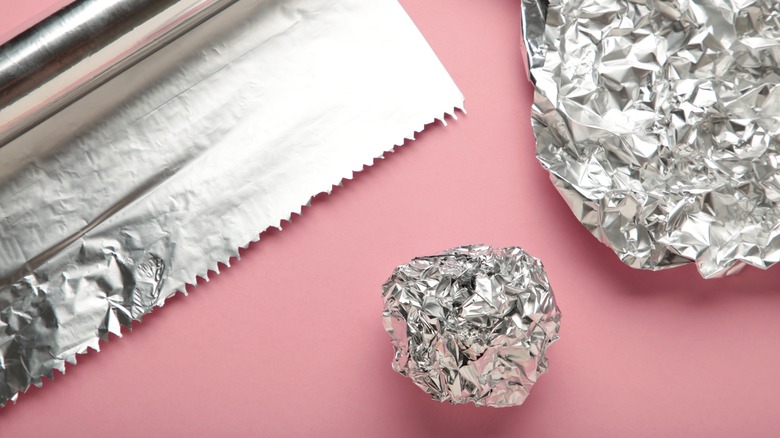Your Secret For A Sparkling Kitchen Sink Is Aluminum Foil
There's yet another use for your roll of humble aluminum foil, beyond the usual baking applications or even these hacks that will make your time in the kitchen a breeze. When lightly balled up, a foot-long piece of aluminum foil makes for an amazing, non-abrasive scrub that can polish up chrome and stainless steel as easily as it can remove rust and limescale deposits on faucets and sinks. (By the way, it's also darn handy for nasty grill grates and greasy pots and pans.) Finally, a pantry staple to stand beside vinegar and baking soda as a household cleaner.
If you're looking to simply shine up some dulled chrome, remove rust deposits, or bust the crud off your grill grate, just run your ball of aluminum under a little water and have at it. For cleaning pots and pans, use a little salt or baking soda to coat the greasy surface before using the aluminum ball scrub (but don't do any of this on a non-stick surface, because disaster.) You'd be forgiven for thinking that it was just the creases in balled-up aluminum foil that were acting as a simple scrub, but what's actually happening is way more interesting (and science-y).
I am become aluminum oxide, destroyer of rust
If balled-up aluminum foil was simply scraping rust particles off a surface like chrome (like steel wool does, except maybe without leaving a coating of metallic dust), that would be one thing. But something else is happening: Aluminum foil, when combined with water and heat caused by the friction of scrubbing, creates a polishing compound which not only removes rust but shines up chrome — something steel wool could never do.
So, what's happening? Aluminum is a soft metal — much softer than chrome. Because of this, it's essentially non-abrasive. In addition, the act of scrubbing produces heat, which creates aluminum oxide, which breaks rust down by leaching away its oxygen atoms. In other words, aluminum foil doesn't simply scrape rust off: It chemically removes it and then polishes the chrome to boot. (Of course, aluminum foil's shiny and dull sides are there for a reason, but they aren't relevant here.)
Okay, but what if my kitchen sink isn't rusty?
The polishing compound created by water and aluminum oxide will do the same for dulled stainless steel that it does for rusted chrome (without giving it quite as bright a shine, of course, because chrome is super shiny). Lime deposits, gunk, and grease don't stand a chance, either. (With the added bonus of aluminum foil being much safer for us cleaning grill grates than brushes with metal bristles, which can shed and get into your food.) And if you're afraid of scratching your stainless steel sink with an aluminum foil scrub, don't be: Just as with chrome, it's a softer metal, making abrasions literally impossible.
A few aluminum foil-cleaning tips: Use more water for a better shine; discard the first aluminum ball once the grime is gone, and make a new one for polishing. If your metal is severely pitted, it's time to buy some new stuff. But, other than that, grab some foil and have a ball.


